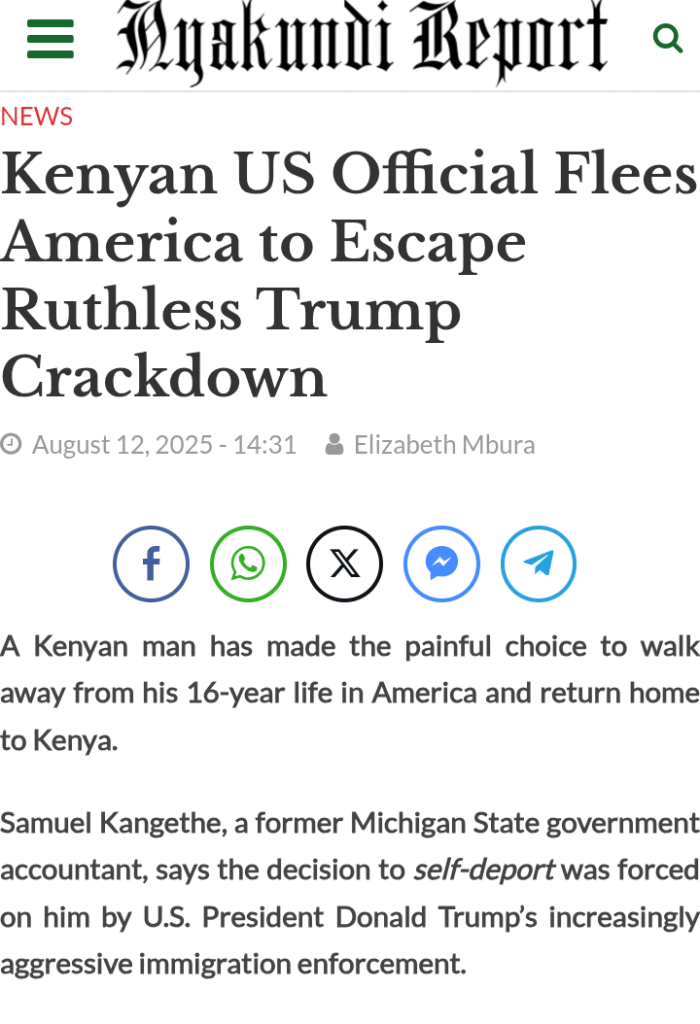A Kenyan man has made the painful choice to walk away from his 16-year life in America and return home to Kenya. Samuel Kangethe, a former Michigan State government accountant, says the decision to self-deport was forced on him by U.S. President Donald Trump’s increasingly aggressive immigration enforcement.
He feared the Trump crackdown would soon make him a prime target for removal. With a family, a career, and deep community ties in the United States, Kangethe says leaving was the hardest decision of his life but one he had to make to protect those he loves.
Samuel Kangethe first arrived in the United States in 2009 on a student visa. He attended Lansing Community College before transferring to Norwood University. Years later, he married and gained conditional residency, but immigration officials continued to question the legitimacy of that marriage.
What followed was a long and exhausting legal battle that remained stuck in the court system for years. The delays worsened during the pandemic, and then without warning, the case was quietly dropped from the docket, leaving him without a verdict or any sense of closure.
Even without a ruling, Kangethe knew the unresolved case left him vulnerable. As Trump’s immigration policies grew harsher, he felt that his time in America was coming to an end.
“A person like me with a case in the court, I check all the boxes of people they will start with,” he said.

He had already remarried, this time to an American citizen, and had been raising a family together for seven years. But even with this stability, the uncertainty never left.
Friends advised him to “lay low,” but for Kangethe, this meant living like a fugitive. “Does ‘lay low’ mean I can’t take my kids to their game? To their orchestra concert? Their first day of school? How can a father protect his family when he’s in hiding?” he asked.
The breaking point came when he realized that being an active father and avoiding immigration enforcement could not happen at the same time. He decided that leaving was the only way to protect his wife and children from the trauma of a sudden arrest or forced removal.
In May 2025, the Trump administration introduced a program offering undocumented immigrants up to Ksh129,000 if they left voluntarily, along with free flights.
Kangethe did not take the payment, but saw it as a clear sign that mass deportations were coming. “This way, I decide when I leave, not them,” he explained.
Today, Kangethe is back in Kenya while his wife and three children remain in the United States legally. The family is now navigating the emotional strain and practical difficulties of living apart. His story shows the human cost hidden behind political rhetoric and immigration statistics.
For him, America was a place where he built a career, friendships, and a family. But in the climate of Trump’s crackdown, all of that felt uncertain. After 16 years, he left not because he wanted to, but because the country he once called home no longer felt safe.





















Add Comment